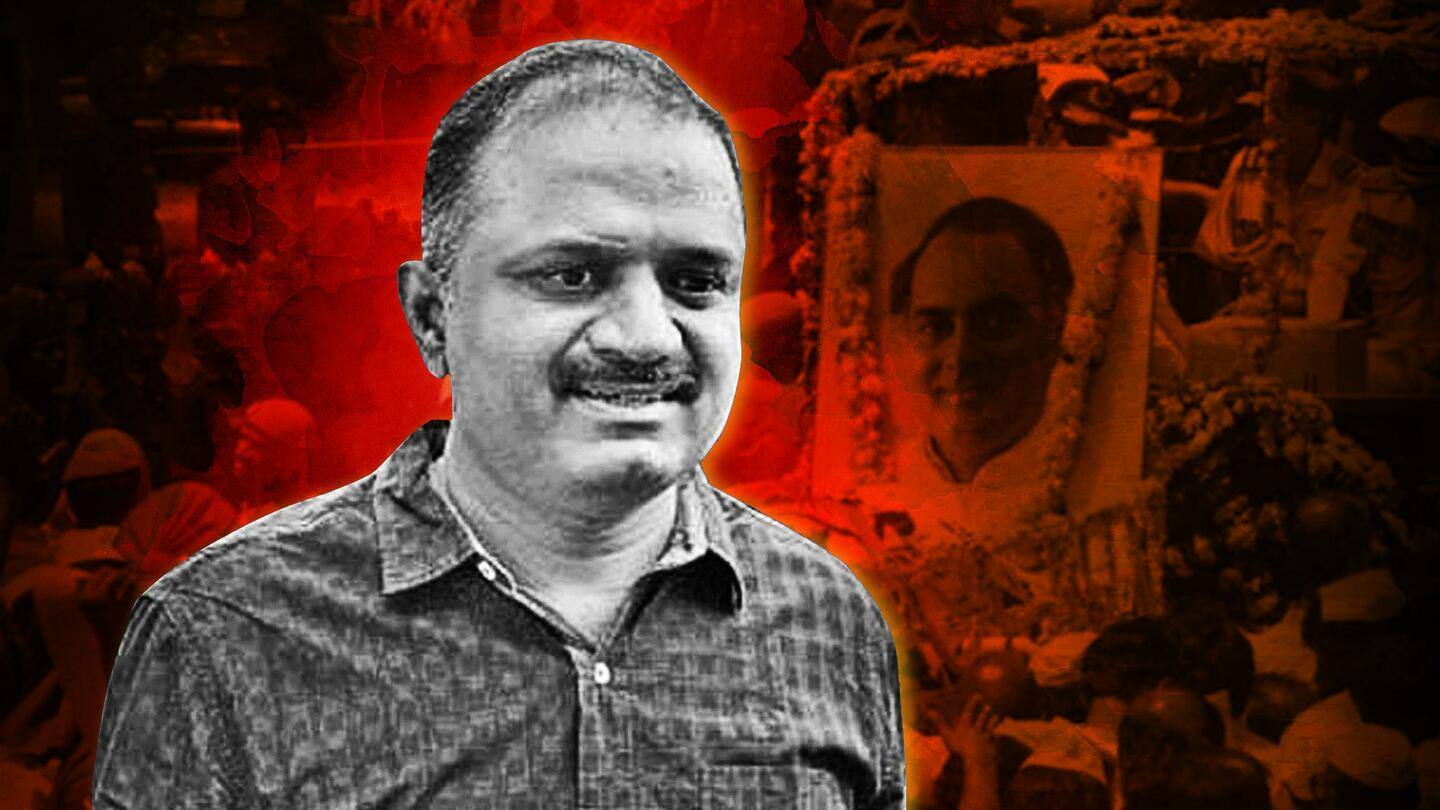
#NewsBytesExplainer: How Perarivalan case made Rajiv Gandhi assassins' release possible
What's the story
The Supreme Court on Friday released the last six convicts in the Rajiv Gandhi assassination case.
The development marked the closure of a high-profile political assassination case and again put the spotlight on AG Perarivalan—the first convict released this year after SC invoked the extraordinary power under Article 142.
His constant legal fight reportedly paved the way for the remaining convicts' release.
Here's more.
Context
Why does this story matter?
Perarivalan was released in May just three days before the 31st death anniversary of Gandhi.
The trial court had sentenced all of the seven suspects in the assassination case to death, which was affirmed by the Supreme Court too.
However, the delay in taking a decision on their mercy requests to the president and their good conduct rescued them from the gallows.
Background
Seven were convicted of the assassination
Gandhi was assassinated in a suicide bomb attack on May 21, 1991.
Three Indian nationals, Perarivalan, Nalini, and Ravichandran, and four Sri Lankans, Santhan, Robert Payas, Jayakumar, and Murugan, are among the seven convicted.
Nalini's death sentence was changed to life in 2000, thanks to Sonia Gandhi's intervention.
Murugan, Santhan, and Perarivalan's death sentences were converted to life imprisonment by the SC in 2014.
Details
Perarivalan was released because of his good conduct
Perarivalan remained behind bars for 31 years beyond his life imprisonment.
His release was recommended by the past governments based on his good conduct but successive governors couldn't arrive at a decision.
In 2015, he filed a mercy plea before then Tamil Nadu Governor Konijeti Rosaiah under Article 161 of the Constitution, which was later referred to the President—the decision supported by the Centre.
Pleas
Nalini, Ravichandran petitioned SC citing Perarivalan case
After the Madras High Court rejected their plea in June, Nalini and Ravichandran moved the apex court in August seeking premature release, citing Perarivalan's case.
The bench of Justices BR Gavai and BV Nagarathna observed that the SC judgment in Perarivalan's case was applicable in their matter.
Perarivalan was granted an early release on account of his long incarceration and good conduct
Observation
Supreme Court had questioned delay
The SC granted bail to Perarivalan on March 9.
Noting that Perarivalan's case kept shuttling between the governor and the president, the SC had on May 11 reserved its verdict on his plea seeking premature release from jail.
The SC questioned the delay and asked "will it not go against the federal structure" if the governor referred all such matters to the president?
Information
Aspects of reforms and reformatory justice
The grounds considered in Periravalan's case have largely played in the release of other convicts too, The Indian Express reported citing legal experts.
Their conduct and reform aspects in them besides health issues also become reasons for their release.
Meanwhile, Justice KT Thomas—one of the former SC judges who recommended their release—said he believes in reformatory justice.
Expert speaks
Former SC judge's crucial observations
"There are two schools of thought. Retentionists want to keep convicts in prison indefinitely, while abolitionists oppose capital punishment and favor reformatory justice," said Justice Thomas.
"I would say that I am an abolitionist. At this moment, I am happy for the fact that they have been released at least now," he said.
He was the frontrunner in demanding the release of convicts.
Complete justice
What is Article 142 of the Constitution?
The Supreme Court, every once in a while, invokes Article 142 which provides it with unique and extraordinary powers to do 'complete justice' in cases pending before it.
"The Supreme Court in the exercise of its jurisdiction may pass such a decree or make such order as is necessary for doing complete justice in any cause or matter pending before it," the Article states.
Motive
Why was Rajiv Gandhi assassinated?
A woman suicide bomber who assassinated Gandhi using her RDX-laden belt was identified as Dhanu, an operative of the Liberation Tigers of Tamil Eelam (LTTE).
The LTTE wanted revenge against the Indian government's decision to send troops to Sri Lanka.
The LTTE was fighting for an independent Tamil Eelam in the northeast part of the island against the historic persecution of Sri Lankan Tamils.